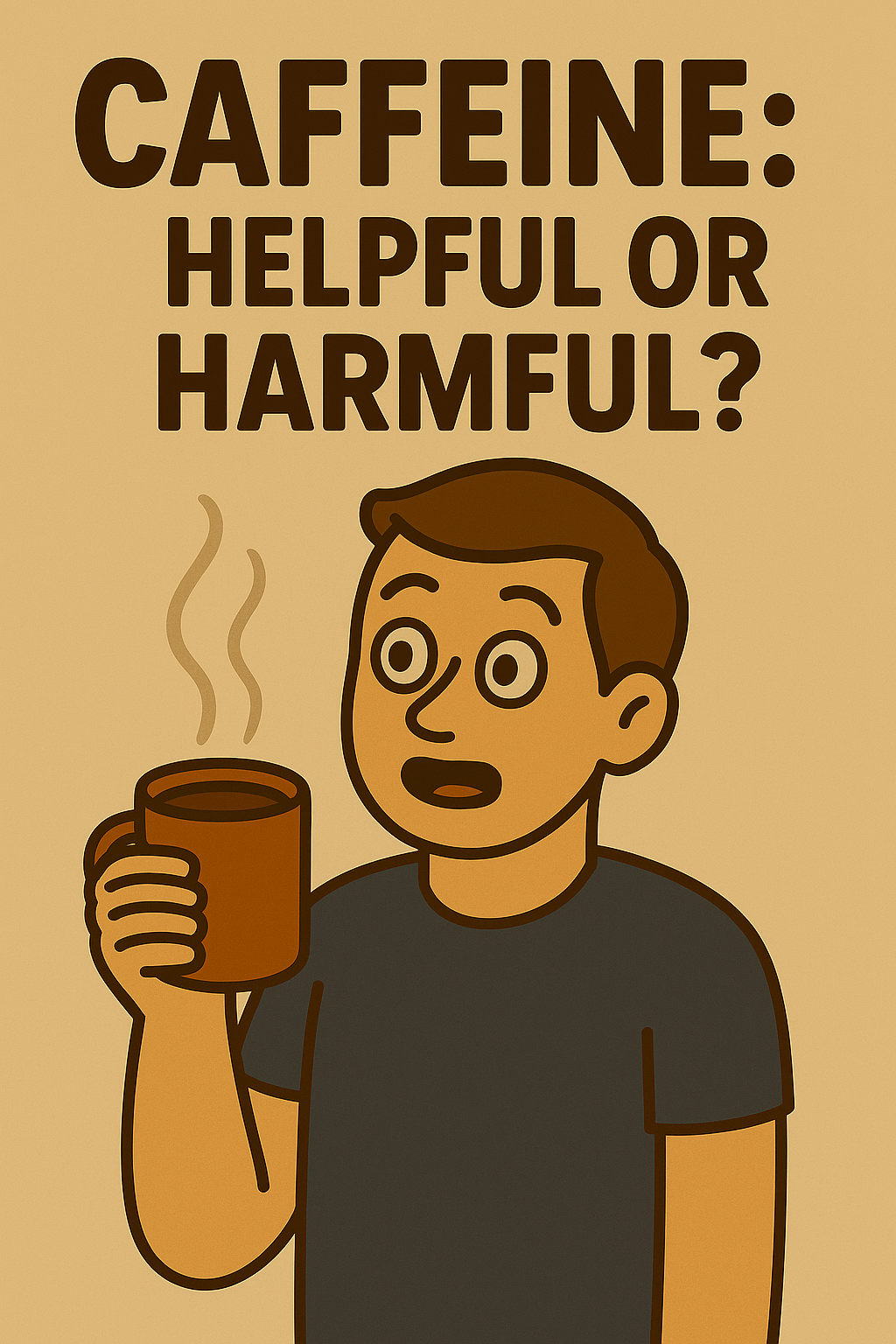Caffeine: Helpful or Harmful
Caffeine: Helpful or Harmful?
A straightforward reflection on how caffeine can work for, or against, you.
I drink coffee almost every day. Usually one to two cups. I enjoy the ritual. I like the way it kicks off my morning and helps me lock in during busy work blocks. I’ve relied on it, benefitted from it, and, at times, overused it.
So this isn’t about demonizing caffeine or trying to scare anyone off. It’s just an honest look at what I’ve learned, from both my own experience and helping others get their energy and routines back on track.
Caffeine is one of the most widely used (and socially accepted) stimulants in the world. It can help you feel sharper and perform better, but it also has some downsides that are easy to overlook if you’re running on autopilot.
When Caffeine Helps
Mental Boost
Caffeine blocks adenosine, a compound in the brain that builds up and makes you feel tired. That’s why that first cup often feels like flipping a switch: you get more focused, more productive, more "on."
Training Benefits
There’s good evidence that caffeine enhances physical performance, especially in endurance and strength. A pre-workout coffee can legitimately improve output in a workout. So in practice, it isn’t just placebo.
Mood and Momentum
Sometimes, that little energy nudge is exactly what you need to get going. In moderation, caffeine can lift your mood, improve motivation, and help you show up with a bit more clarity and drive.
When Caffeine Starts to Work Against You
Sleep
This is the big one. Caffeine has a half-life of 5–7 hours. Even if you don’t feel wired, it can quietly interfere with your sleep quality. For me, if I have caffeine after about 1–2 p.m., I notice it in how I sleep, and how I feel the next morning.
Dependence
There have been times when I felt like I couldn’t function without coffee. That’s usually the sign that I’ve gone too far. Once caffeine becomes a daily crutch instead of a helpful tool, you lose the ability to tell whether you’re tired, overstressed, under-recovered, or just under-caffeinated.
Tolerance
The more you use it, the less it does. And if you’re always increasing your intake just to feel “normal,” you’re no longer getting the same benefits. You’re just chasing baseline.
False Energy
This is a sneaky one. Caffeine can mask how tired, depleted, or overtrained you actually are. It makes it easier to ignore your body’s signals, and that can compound deeper fatigue over time. Which is also an easy line right into injury.
My Takeaway
Caffeine isn’t good or bad. It just is.
It’s a tool, and how you use it determines whether it’s helping or hurting you.
When I use it intentionally; like during focused work, early mornings, or pre-lifting; it serves me. But when I rely on it to push through days where I’ve slept poorly, skipped meals, or overbooked myself, I pay for it later.
What’s worked for me:
Cutting off caffeine by early afternoon (usually before 1 p.m.)
Taking occasional caffeine breaks to reset tolerance
Being honest with myself about why I’m reaching for it; am I tired? stressed? under-recovered?
Keeping the dose low enough that I still feel energized without feeling wired
Everyone’s sensitivity is different. Some people metabolize caffeine fast. Others feel it linger all day. What matters is learning how it affects you, and adjusting based on how you want to feel.
You don’t need to cut it out. But it’s worth asking: Is this cup helping me—or am I just surviving another day?

